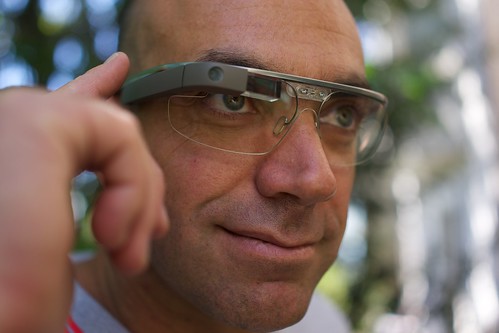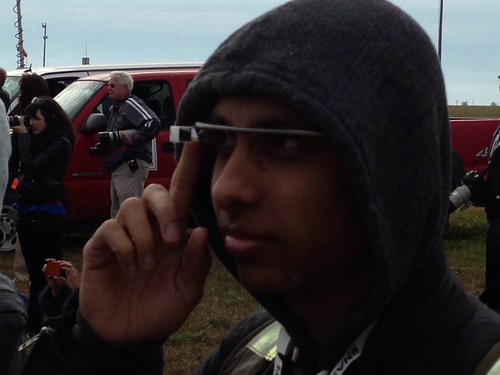 Most of us who have been in the SEO game for a few years, will be somewhat reliant on Google to continue our trade. Google is the largest search engine by far, so it’s there that we want to reach the top of the SERPs, and it’s generally ‘what Google say goes’ as far as our promotional strategies are concerned.
Most of us who have been in the SEO game for a few years, will be somewhat reliant on Google to continue our trade. Google is the largest search engine by far, so it’s there that we want to reach the top of the SERPs, and it’s generally ‘what Google say goes’ as far as our promotional strategies are concerned.
But Google is reliant on hardware to be any use. In order to access Google at all, we need to be using a computer, smartphone or tablet of some kind – and so changes in the hardware industry could very easily have a big effect on the way we optimise for search. With Google Glass poised to make a huge splash in the hardware scene sometime soon, how might we expect this to alter the way we use search?
Factors to consider
Of course for Google Glass to have any impact on SEO, it is somewhat necessary for the device to actually be a hit. If nobody uses Google Glass, then it’s not going to affect search – end of story. That said though, even if Google Glass doesn’t take off in a big way, it could certainly prepare the market for the introduction of other augmented reality hardware. It might be that Google Glass flops, but ‘The Viewmaster 5,0089’ becomes a huge hit. And if that happens, then Google needs to make sure that it is the number one search provider still – lest Bing get in there first and steal a big portion of the market.
The New Search
Assuming though that Google Glass is a hit, and that the competition doesn’t turn up and throw a spoke in the works, we will likely all be using Google to search still – just on our faces.
Currently Google Glass isn’t really a device that you might surf the web with, but as developers start creating apps for it, we’ll probably find browsers popping up and people searching the web ‘hands free’.
And to do this, people will want to be able to use voice commands. With no other way to input text, they will be completely reliant on the in-built voice-recognition software in order to get the search results they want. In turn, this means we might start seeing a change in the kinds of keywords that people use – they’ll be searching for things that come more naturally to say rather than things that come more naturally to type.
This will likely mean a wider variety of keywords, and it will probably mean more ‘long tail’ keywords – though because voice-recognition isn’t perfect, most people will still probably want to keep their searches rather brief.
Searching on the Move

The fact that people will be walking around as they wear their hardware though, might also affect the kinds of things that they search for – we might start to see people searching for local conveniences more often for example, or for the weather reports.
Likewise, Google is likely to include location services even more closely as more and more people start searching on the go (something that has already happened to an extent thanks to the popularity of smartphones). Watch this space to find out what else might change, but just make sure that your site and your SEO is ready.
Today’s guest writer, Mike, is an internet marketing consultant who works at Wisdek. He is a passionate blogger and likes to share his strategies and views on marketing. He loves technology and is fond of knowing more about the latest gadgets that enter the market.
